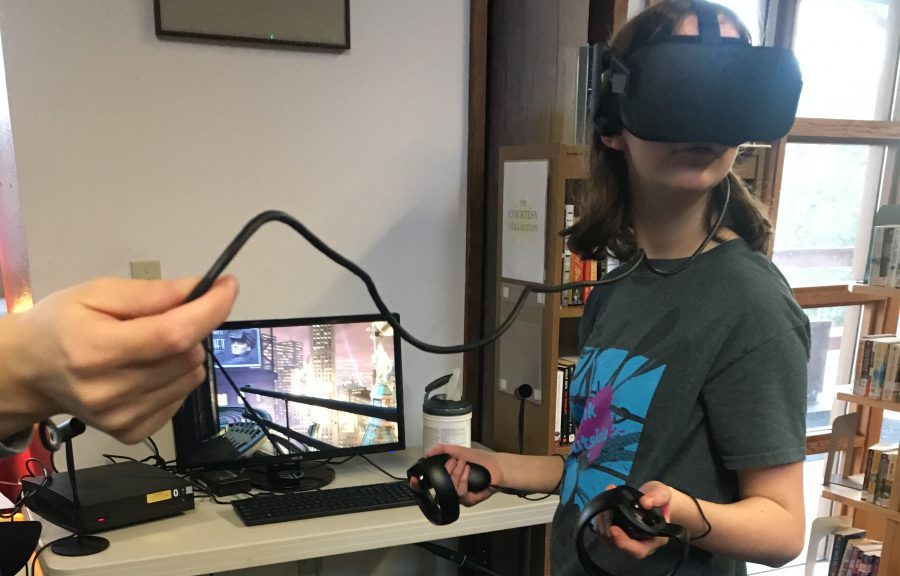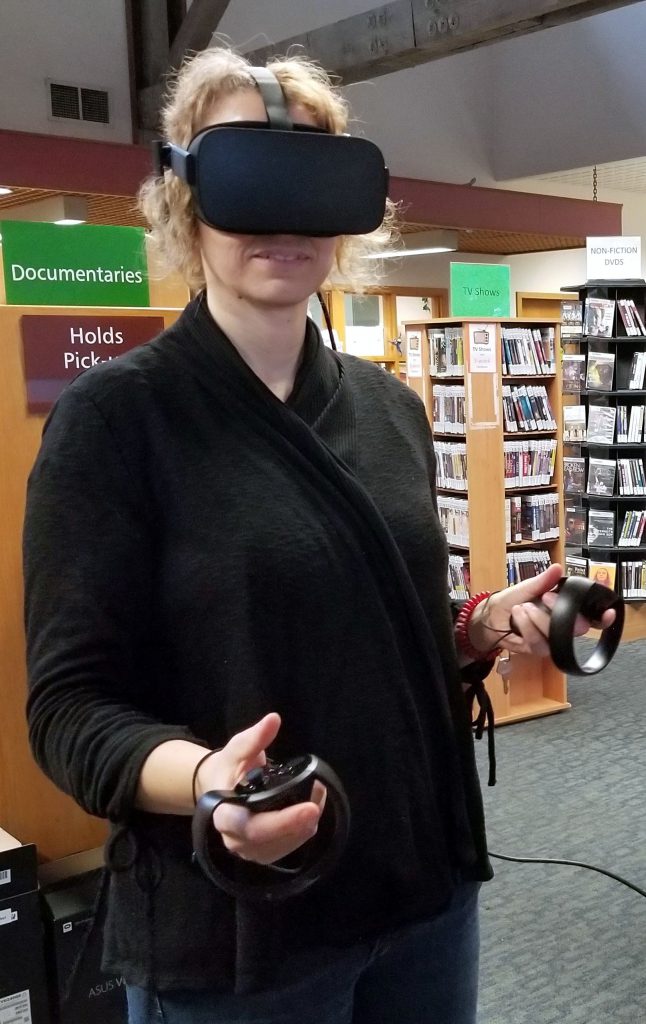
Reality Check
From the Desk of Joe Olayvar

If you haven’t noticed, there’s a device craze going on. Nearly everywhere you look in any town or city across the globe, someone is absorbed in conversation, web searching, or game play. Yes, we’ve come a long way since the Atari or the early phone and its five pound battery pack. But like every technology, there’s always something new that will eventually overshadow it, or at least add a new facet; in this case, it’s Virtual Reality; better known as simply VR.
VR is nothing new, but it’s influx into the consumer market is. At first glance, it’s a new platform that takes gaming up a notch with immersive 3D graphics and audio. But in reality (pun intended), the potential for VR is literally ground breaking on so many levels. Its ability to transport the user into worlds of every description will reinvent how we learn, conduct business, recreate, experience social media, and even heal.
With this in mind, the Washington State Library has launched the “VR in Libraries” project in partnership with the University of Washington’s Information School (iSchool) and one of the leading VR companies in the world, Oculus. This two-year project will have several phases. The initial Pilot (Phase I) includes studying the educational possibilities of VR in six libraries, thanks to the team of iSchool researchers led by Negin Dahya. The following phases will take advantage of what is learned and ultimately see forty seven VR systems being rotated roughly every six months to reach as many Washington State Libraries as possible by the close of year 2020.
In the course of the project’s two year span, fifty VR systems will have been shared with over 180 libraries. But at projects end, these VR systems will be granted to fifty Washington State libraries as permanent homes. That is virtually a real win-win for our communities.
Funded in part by the Institute for Museum and Library Services through the Library Services and Technology Act.